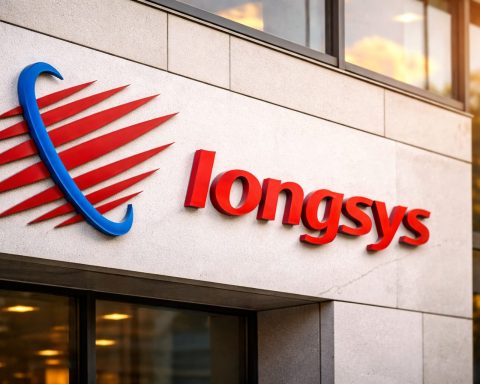- Airbnb Stock Climbs to ~$128: Airbnb (NASDAQ: ABNB) shares traded around $128–$129 on Wednesday, nearing their highest level in over a month after a 1.5% jump on Tuesday that pushed the stock above its 200-day moving averagets2.tech. The stock is up roughly 10% since early October, though still about 21% below its 52-week high of $163.93ts2.tech and 43% below its late-2021 record peak1 .
- Earnings on Deck (Nov. 6): Airbnb is scheduled to report Q3 2025 results on November 6. Wall Street forecasts earnings of about $2.29 per share, a 7.5% increase year-on-yearbarchart.combarchart.com, on single-digit revenue growth. The company beat estimates last quarter but issued cautious guidance, which “made investors worry” about a possible growth slowdown, according to CNBC’s Jim Cramer2 .
- New Features and AI Push: This week Airbnb unveiled new social features for its Experiences platform, letting guests see who else is booked and message each other (with privacy controls)investing.cominvesting.com. The company also rolled out “smarter search and improved maps” and a “Reserve Now, Pay Later” option ahead of the holidaysinvesting.com. Notably, Airbnb’s AI-powered virtual assistant is expanding in English, Spanish, and French, enabling customers to resolve issues in seconds instead of hourslatimes.comlatimes.com. CEO Brian Chesky said he didn’t rush to integrate OpenAI’s ChatGPT into Airbnb’s app because the tools aren’t “quite ready,” opting instead to use in-house AI built on models like Alibaba’s Qwen and OpenAI in the backendlatimes.comlatimes.com. The result: automated customer service that cut resolution times from ~3 hours to just 6 secondslatimes.comlatimes.com, reducing the need for live agents by 15%.
- Analysts Cautiously Optimistic: Wall Street’s consensus 12-month price target is about $139ts2.tech, ~8% above current levels, with many analysts rating ABNB a hold. Mizuho recently initiated coverage with an Outperform rating and a $151 targetts2.tech, citing Airbnb’s strong brand and long-term growth runway. On the skeptical side, some see near-term challenges: a Seeking Alpha analyst warned that “mixed travel indicators” and “weaker demand growth for alternative accommodations” could make Q3 “disappoint” as the post-pandemic travel boom normalizesnewsquantified.com. Still, Airbnb’s “extremely healthy” balance sheet and ongoing share buybacks (over $2.5 billion authorized) provide a buffer and value to long-term investorsnewsquantified.com3 .
- Travel Rebounds, Airbnb Lags Peers: The broader travel sector is booming in 2025. Booking Holdings – owner of Priceline and Booking.com – hit an all-time high above $5,800 per share this summer and remains ~50% higher than a year agotrefis.comforbes.com. Rival Expedia Group is up roughly 40% year-over-year after recovering from a 2022 slumpreuters.com. By contrast, Airbnb stock is roughly flat versus 12 months ago (down ~5%barchart.combarchart.com), suggesting it hasn’t fully participated in 2025’s travel-stock rally. Some market watchers, like CNBC’s Jim Cramer, argue that could spell opportunity: “That whole class of [post-pandemic IPO] equities…they’re all on fire except for this one. I think you buy Airbnb,” Cramer said this fallnewsquantified.com. His take is that Airbnb’s core business remains solid even if the stock has been “chronically denigrated” and left behind by investors4 .
Rally, Regulation & What’s Driving the Stock
Shares Break Out: After a choppy summer, Airbnb’s stock price has gained steam this month. It closed Tuesday at $128.60barchart.com, up ~1% for the day and extending a week-long climb. Importantly, ABNB crossed above its 200-day moving average (~$129), a key technical level, for the first time in over a yearts2.tech. Traders often see a 200-day breakthrough as a bullish signal; the move “could attract short-term traders” if Airbnb can hold above that thresholdts2.tech. The stock now trades near the upper end of its 52-week range (low of $99.88, high of $163.93)ts2.tech. By comparison, the Nasdaq 100 is hovering around record highs and travel stocks broadly have rallied on robust demand.
Recent Performance: Year to date, Airbnb has modestly outpaced the S&P 500, but its ~2% gain over the past 12 months lags the likes of Booking (+50% YoY) and Expedia (+40% YoY)forbes.comreuters.com. Airbnb’s underperformance stems in part from its premium valuation and earlier run-up: even now, ABNB trades around 31× trailing earningsbarchart.combarchart.com – pricier than hotel chains and on par with faster-growing tech firms. In mid-2023, concerns about “host fatigue” (as more people returned to hotels) and regulatory crackdowns weighed on sentiment. Indeed, the stock hit a low near $100 in April. Since then, however, resilient travel spending and Airbnb’s own initiatives have helped shares rebound about 30% from those spring lowsbarchart.com5 .
Travel Demand & Competition: Global tourism has roared back in 2025, with international travel rising toward pre-pandemic levels. Airbnb reported record bookings and revenue in the first half of 2025, thanks to strong summer travel in Europe and North Americanasdaq.comnasdaq.com. Yet growth is normalizing from the torrid pace of 2021–2022. Rival Booking Holdings and hotels have expanded in vacation rentals, eating into some market share. Booking’s own alternative accommodation bookings are up double digits, and Expedia’s Vrbo remains a competitor for whole-home rentals. Airbnb is responding by expanding into traditional hotel inventory – a notable strategic shift. The company has posted over 180 job openings for hotel-focused roles (like “hotel supply acquisition” managers across the U.S., EMEA, and Latin America) as it seeks to list more boutique hotels and B&Bs on Airbnbskift.comskift.com. “Aggressively expanding its hotel business” will be a multi-year effort, according to travel industry outlet Skiftskift.com, but it could widen Airbnb’s appeal for travelers who want more conventional accommodations alongside home rentals.
Product Updates: Meanwhile, Airbnb continues to roll out new features aimed at improving the guest and host experience – and boosting engagement on its platform. The latest social features for Airbnb Experiences (group activities and tours) are designed to “make travel as much about the people as the activity,” the company saidinvesting.com. Users can now see “Who’s Going” on an experience (with participants’ country flags) and opt into a Connections list showing people they met on tripsinvesting.cominvesting.com. A new direct messaging tool even lets co-travelers keep in touch after a tour without exchanging numbersinvesting.com. These features tap into travelers’ desire for community and could spur word-of-mouth and repeat bookings. Airbnb hinted that more social tools are coming in 2026, potentially including user-generated travel content on the applatimes.com6 .
On the practical side, Airbnb’s “Smarter Search” update will help users discover homes near points of interest and even surface listings slightly outside their initial criteria (to broaden options)investing.com. And the new “Reserve Now, Pay Later” plan – just launched in the U.S. – allows guests to book eligible stays with no upfront payment, a feature that will go global in 2024investing.cominvesting.com. This mirrors offerings by online travel agencies and could attract budget-conscious travelers or those booking far in advance.
AI Assistant & Tech Edge: Perhaps most significant is Airbnb’s investment in AI and automation. In May, it introduced a GPT-4-powered travel assistant to a pilot group of users, and it’s now expanding that digital agent in North America. The AI assistant can handle common inquiries and changes – from altering a reservation to initiating a refund – through an interactive chat. According to Airbnb, this has already cut customer service resolution times from ~3 hours to just 6 seconds on averagelatimes.comlatimes.com. The AI agent uses a mix of models (13 in total) and favors ones that are “fast and cheap” like Alibaba’s Qwen for many taskslatimes.com. Brian Chesky noted that while Airbnb does use OpenAI’s latest models in some cases, “we typically don’t use them that much in production because there are faster and cheaper models” that can handle the load7 .
Importantly, Chesky – who is friends with OpenAI CEO Sam Altman – has opted not to integrate Airbnb directly into ChatGPT (unlike Expedia and Kayak) until that platform matureslatimes.comlatimes.com. “I didn’t think it was quite ready,” he said of ChatGPT’s travel plugin abilitieslatimes.com. Instead, Airbnb is keeping users within its own ecosystem and beefing up its app’s AI capabilities. The benefit is twofold: it maintains control over the customer experience and data, and it reduces support costs by automating roughly 15% of requestslatimes.comlatimes.com. Over time, these AI-driven efficiencies could bolster Airbnb’s margins – a key focus for investors after the company achieved its first full-year profit in 2022.
Earnings Outlook: Solid Growth with Some Turbulence
With Q3 results due in two weeks, analysts expect another profitable quarter for Airbnb. Consensus estimates project revenue of around $3.4 billion (up ~14% YoY) and adjusted earnings per share near $2.29barchart.combarchart.com. If achieved, that would mark Airbnb’s most profitable quarter ever, as Q3 is typically its seasonal peak thanks to summer travel. Last quarter (Q2 2025), Airbnb delivered a 16% jump in net income to $642 million on 13% higher revenuemarketbeat.com, and management highlighted strength in European cross-border trips and longer stays. However, executives also struck a “guarded” tone about the second half, citing uncertainty in consumer travel trendsnewsquantified.com. They noted a surge of pent-up travel demand in prior years is leveling off, and tough comparisons could make growth rates look more modest.
Those cautious comments caused a post-earnings dip in the stock, as Jim Cramer recapped: “Airbnb gave us a beat-and-meet quarter and signaled its margins would likely contract in the back half of the year. We’re no longer paying up for these kinds of stocks…in many cases, we run from them,” he said of Wall Street’s reactionnewsquantified.comnewsquantified.com. Indeed, Airbnb’s EBITDA margins are expected to compress slightly due to higher product development spending (e.g. on AI, new features) and marketing. The company is also absorbing the impact of city regulations (like strict host registration rules in New York City that took effect this fall, sidelining many listings). “If they’re going into a slowdown, then it’s hard for Wall Street to get excited about these new growth initiatives,” Cramer addednewsquantified.com, referring to products like Airbnb Experiences and services. In other words, investors want to see sustained booking growth and not just innovation for its own sake.
For Q3, key metrics to watch will be Nights Booked and Gross Booking Value (GBV), which rose 11% and 13% respectively last quarter. Any sign of a dip in demand – perhaps from consumer belt-tightening or competition – could pressure the stock in the short term. There are some mixed signals: European travel was strong through August, but some analysts point out a slight softening in alternative accommodation growth industry-widenewsquantified.com. The “silver lining,” as one analyst noted, is Airbnb’s robust finances: over $10 billion in cash, positive free cash flow, and no debtbarchart.combarchart.com. The company is aggressively buying back shares (it repurchased ~$1 billion in Q2 alone), which supports EPS growth and shows confidence in its valuation. This financial strength gives Airbnb flexibility to invest in new offerings – and ride out any near-term travel volatility – without jeopardizing profitability.
Short-Term Headwinds: Regulatory crackdowns remain a wildcard. In Europe, several popular cities have tightened rules on short-term rentals to protect housing affordability. In Spain, officials in May ordered Airbnb to remove 65,000+ listings that lacked proper licenses or owner informationreuters.com. The Spanish government and local councils have launched a “general crackdown” on vacation rentals via platforms like Airbnb and Booking, blaming them for housing shortages and soaring rentsreuters.com. Barcelona has gone as far as banning new short-term rental permits and plans an outright ban on short-stay apartments by 2028reuters.com. Airbnb is appealing Spain’s actions, arguing many listings were legal and that it’s unfairly scapegoated for broader housing issuesreuters.com. Nonetheless, stricter enforcement in Europe (and in U.S. cities like NYC and San Francisco) could limit Airbnb’s supply growth or add compliance costs. Investors will be listening for any impact on Q3 bookings or host sign-ups in regulated markets.
Another headwind could be consumer travel patterns normalizing after two boom years. There are hints that travelers are favoring urban hotels and resort packages again, after flocking to Airbnbs in rural areas during the pandemic. Cruise lines also reported a late-2025 softening in bookingsnewsquantified.com, which some see as a sign that the post-COVID travel frenzy has cooled. If Airbnb’s gross bookings or take rates come in light this quarter, expect analysts to probe whether it’s a macro issue or increased competition from hotels.
What’s Next: Forecasts and Long-Term Upside
Despite near-term questions, many experts still see plenty of runway for Airbnb’s growth. The company is expanding internationally at a steady clip – a focal point of bull cases. Wall Street analysts note that North America and Europe account for the bulk of Airbnb’s business today, but regions like Asia-Pacific and Latin America remain underpenetrated. Airbnb’s share of total tourist lodging in countries like Japan, Italy, and Brazil is still relatively smallnasdaq.comnasdaq.com. The company has been localizing its app and marketing in these areas, which is “already bearing fruit,” according to a Motley Fool analysis: in Japan, first-time Airbnb guests jumped 15% last quarter thanks to a push to attract local travelersnasdaq.comnasdaq.com. This international expansion – adapting to local languages, payment methods, and regulations – could drive solid double-digit growth for the next decade if executed wellnasdaq.comnasdaq.com. Wall Street’s consensus calls for ~12% annual revenue growth for Airbnb over the next 3–5 years, outpacing many traditional travel companies.
Long-Term Catalysts: Airbnb is also evolving beyond its home-rental roots. CEO Brian Chesky has hinted at ambitions to turn Airbnb into a broader “travel superbrand”. The addition of Airbnb Experiences (local tours and classes), the new Airbnb Rooms category (cheap private-room stays), and potential for user-generated travel guides all point to a platform that keeps travelers engaged before, during, and after tripslatimes.comlatimes.com. If Airbnb can successfully recommend not just where to stay, but what to do and where to go next, it could capture a larger share of traveler spending – and even advertising dollars from tourism bureaus or brands.
Additionally, Airbnb’s moves into hotels and potentially longer-term rentals (monthly stays) broaden its addressable market into multi-trillion-dollar territory. There’s risk here – Airbnb must compete with Booking, Expedia and others on their turf – but also an acknowledgment that the lines in travel are blurring. “Airbnb is still driven by its original home-sharing idea” and has a massive $75 billion market capnasdaq.comnasdaq.com, the Motley Fool’s Brett Schafer writes, yet it’s using that scale to branch out. By 2030, some analysts envision Airbnb offering flights, rental cars, or full trip packages (though management hasn’t announced anything on that front).
Analyst Sentiment: At the moment, out of ~40 analysts, about 50% rate ABNB a “Hold,” 45% “Buy,” and a few “Sell.”barchart.com Many see the stock as fairly valued after its recent rebound. The average target of $139ts2.tech implies moderate upside. More bullish forecasters (e.g. Bank of America) think Airbnb’s asset-light model and dominant brand deserve a premium multiple, with one recent target as high as $170. Skeptics, however, point to a price-to-sales ratio near 7× and a >30× P/Ebarchart.combarchart.com, arguing the stock could stall if growth doesn’t reaccelerate. A Forbes analysis even warned of “40% downside” in a recession scenarioforbes.comforbes.com. In the near term, a lot may ride on Airbnb’s holiday season outlook and whether management raises its full-year forecast on Nov. 6.
Market Context: With interest rates elevated and economic uncertainty into 2026, investors have rotated into profitable, cash-rich companies – a club that now includes Airbnb. The stock is part of the Nasdaq-100 and S&P 500, so broader market trends (tech stock volatility, consumer confidence) will influence it. Notably, Airbnb tends to perform well when USD is strong, as a rising dollar effectively makes U.S. travel cheaper for international tourists. MarketBeat notes that hedge funds see travel names like Airbnb benefiting from the dollar’s climb in recent monthsbarchart.com. If inflation eases and people continue prioritizing experiences over goods, Airbnb could ride that secular tailwind.
Short-Term vs Long-Term: In summary, short-term catalysts for ABNB stock include its Q3 earnings report and holiday booking trends, as well as any news on regulations (e.g. an EU-wide rental registry coming in 2026). Longer-term, the investment thesis hinges on Airbnb’s ability to keep innovating and expanding into new markets without eroding its margins or brand trust. The company has shown it can be highly profitable, and it’s now balancing growth initiatives (like hotels and new features) with shareholder returns (buybacks). For general investors, Airbnb’s stock presents a classic growth-versus-valuation story. As Jim Cramer put it, Airbnb has been the laggard among post-pandemic tech darlings, but that may also mean it has room to run: “They’re all on fire except for this one… I think you buy Airbnb.”4
Bottom Line: Airbnb enters late 2025 on an upswing – its stock gaining momentum, its platform evolving, and travel demand still robust. There are clouds on the horizon, from regulatory hurdles to competition, and the company’s next earnings will be a crucial check-in on its progress. For now, analysts broadly agree that Airbnb is fundamentally strong and here to stay, even if opinions diverge on whether the current share price is a bargain or fully baked. With a globally recognized brand and a slew of new tools (AI and otherwise) to improve the user experience, Airbnb is aiming to convert today’s travel resurgence into lasting growth. Investors will be watching closely in the weeks ahead to see if this “unstoppable” stocknasdaq.comnasdaq.com can finally live up to that label in the market’s eyes.
Sources: Airbnb investor news and financial datanasdaq.combarchart.com; TechStock²/TS2 Market Updatests2.techts2.tech; Investing.com Newsinvesting.cominvesting.com; Los Angeles Times/Bloomberg (Chesky interview)latimes.comlatimes.com; Reuters (regulatory developments)reuters.comreuters.com; The Motley Foolnasdaq.comnasdaq.com; CNBC/Insider (J. Cramer commentary)newsquantified.comnewsquantified.com; Seeking Alpha analysisnewsquantified.com; Skift travel industry reports8 .






